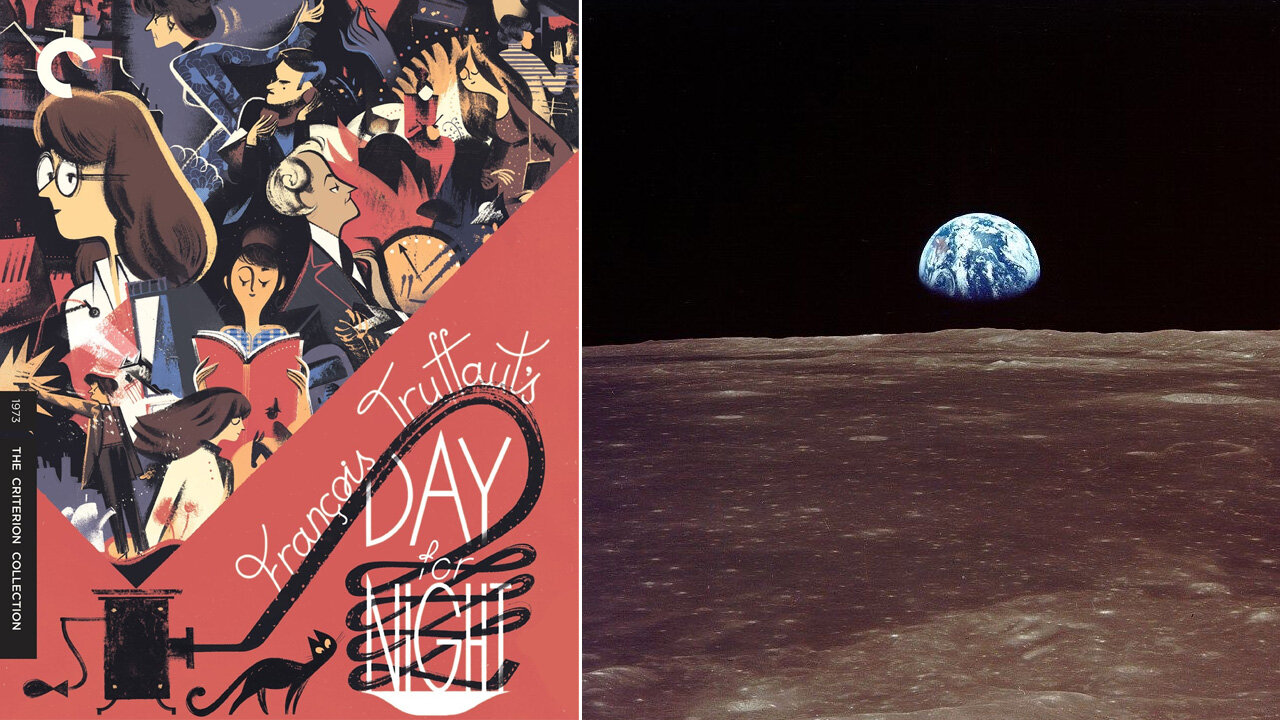Premium Only Content

'Day for Night' (1973) Graham Greene as an Extra
Graham Greene appears as an unnamed extra in 'Day for Night'. His cameo is incredibly subtle—he’s seen briefly as part of a crowd in a street scene.
It’s a fun bit of trivia, especially considering Greene’s history as both a film critic and a novelist whose works were frequently adapted into films ('The Third Man', 'Brighton Rock'). His appearance here is likely a nod to his deep ties with cinema, though he had no formal acting role.
'Day for Night', directed by François Truffaut, is a celebrated French film about the chaotic yet magical process of filmmaking.
Overview: 'Day for Night' (La Nuit Américaine) is a metacinematic masterpiece that offers a behind-the-scenes look at a fictional film production, capturing the creative struggles, personal dramas, and technical mishaps that come with making a movie. It is often considered Truffaut’s love letter to cinema.
Plot Summary: The film follows a director, Ferrand (played by Truffaut himself), as he attempts to complete his latest production, Meet Pamela. He juggles temperamental actors, unpredictable events, and on-set romances, all while staying committed to his artistic vision.
Key Themes: Love for Cinema – The film highlights the magic and absurdity of filmmaking, from late-night script rewrites to last-minute reshoots.
Blurring Fiction and Reality – The movie mirrors the real-life dynamics of its cast and crew, emphasizing how personal lives bleed into professional work.
The Director as an Orchestrator – Ferrand struggles to control both his film and the emotional turmoil of his actors, showcasing the immense challenge of filmmaking.
Performances: Jacqueline Bisset shines as Julie Baker, a rising actress with a troubled past.
Jean-Pierre Léaud plays Alphonse, a young, emotionally unstable actor dealing with heartbreak.
François Truffaut plays Ferrand, exuding both passion and frustration as he navigates production challenges.
Cinematography & Style: Truffaut employs a documentary-like style, giving the audience a sense of realism. The film’s title refers to a filmmaking technique where scenes shot in daylight are made to look like nighttime using special filters, symbolizing the illusion of cinema.
Legacy: Won Best Foreign Language Film at the Academy Awards (1974).
Inspired future filmmakers with its realistic depiction of movie-making.
Considered one of the greatest films about filmmaking, alongside 8½ and Singin’ in the Rain.
Final Verdict: A must-watch for cinephiles and anyone fascinated by the behind-the-scenes world of movies.
-
 LIVE
LIVE
Akademiks
3 hours agoWar in RAT-LANTA. Young Thug vs Gunna vs Ralo vs YSL MONDO. Who Will Le Bebe Pick. FINAL CRASHOUT!
2,087 watching -
 1:02:24
1:02:24
Man in America
7 hours agoThe Final Battle: Nanotech, Transhumanism & the War for Your Soul w/ Dr. Ed Group
20.4K2 -
 39:56
39:56
Sarah Westall
1 hour agoUpcoming World Wide Economic Collapse/Deep Recession & What the Big Money is Doing w/ Ed Dowd
6.76K3 -

Barry Cunningham
3 hours agoIT'S MOVIE NIGHT WITH BARRY!
23.6K11 -
 31:05
31:05
The Why Files
2 days agoPeru's Most Terrifying Mystery | The Face Peelers
29.9K41 -
 1:32
1:32
Gaming on Rumble
11 hours agoWhat is the Rumble Creator Program?!?! | Lvl UP
21.9K4 -

Flyover Conservatives
22 hours ago9/11 on Steroids: What’s Coming This Fall? - Bo Polny | FOC Show
28.8K1 -
 1:01:28
1:01:28
Precision Rifle Network
8 hours agoS4E27 Guns & Grub - Let's Talk About Gas Guns
15K1 -
 59:29
59:29
The Charlie Kirk Show
4 hours agoTHOUGHTCRIME Ep. 96 — The Great Flag Burning Debate
42.1K34 -
 57:56
57:56
The Mel K Show
4 hours agoMel K & General Mike Flynn | Betrayal of a Nation: Soros’ NATO World Order | 8-28-25
26.3K24